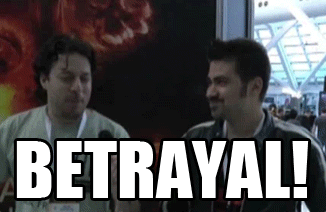Monday, November 17, 2014
Words Fail Me
Well actually, one does spring to mind. But anyway...
This is a page from an issue of Superman/Wonder Woman coming out later this week.
Thursday, January 23, 2014
From Aphrodite to Athena: Wonder Woman & Her Sword
As time passes, long-running characters have to evolve in order to remain fresh and relevant. Characters like Sherlock Holmes, Dracula, and most comic book superheroes have lasted as long as they have, and remained pop cultural icons, exactly because they've evolved over time.
But a frequent issue when reinventing or adapting a long-running character is finding the balance between innovation and staying true to who/what the character is. Change and innovation is essential, but if one goes too far, or strays too much from the source, you run the risk of...well...
This was a major sticking point in Man of Steel. People that liked it felt it was a necessary and needed re-imagining of the character. Others felt it went too far and betrayed many of the core principles of Superman.
A more extreme example would be Rob Zombie's Halloween films, which changed Michael Myers from a silent, unknowable embodiment of pure evil to a grunting, white-trash brute with mommy issues.
J.J. Abrams's Star Trek movies, the recent Sherlock Holmes films...the list goes on.
Often times, when debating the matter, people look to the original creator(s), and what he/she/they intended for the character and/or story. Because one thing most people seem to agree on is if the re-imagining or adaptation can at least stay true to the spirit or principles of that original intention, then maybe you're okay.
Perhaps the Joker didn't fall into toxic waste in The Dark Knight, and his clown face was merely scars and make-up. But Heath Ledger captured the essence of the character—the nihilistic, "life is a cruel joke, and I'm going to show everyone what a cruel joke it is" core of the Joker.
That's what mattered (for most people, anyway).
So let's have a look at William Moulton Marston and Wonder Woman.
But a frequent issue when reinventing or adapting a long-running character is finding the balance between innovation and staying true to who/what the character is. Change and innovation is essential, but if one goes too far, or strays too much from the source, you run the risk of...well...
This was a major sticking point in Man of Steel. People that liked it felt it was a necessary and needed re-imagining of the character. Others felt it went too far and betrayed many of the core principles of Superman.
A more extreme example would be Rob Zombie's Halloween films, which changed Michael Myers from a silent, unknowable embodiment of pure evil to a grunting, white-trash brute with mommy issues.
J.J. Abrams's Star Trek movies, the recent Sherlock Holmes films...the list goes on.
Often times, when debating the matter, people look to the original creator(s), and what he/she/they intended for the character and/or story. Because one thing most people seem to agree on is if the re-imagining or adaptation can at least stay true to the spirit or principles of that original intention, then maybe you're okay.
Perhaps the Joker didn't fall into toxic waste in The Dark Knight, and his clown face was merely scars and make-up. But Heath Ledger captured the essence of the character—the nihilistic, "life is a cruel joke, and I'm going to show everyone what a cruel joke it is" core of the Joker.
That's what mattered (for most people, anyway).
So let's have a look at William Moulton Marston and Wonder Woman.
Subscribe to:
Comments (Atom)

